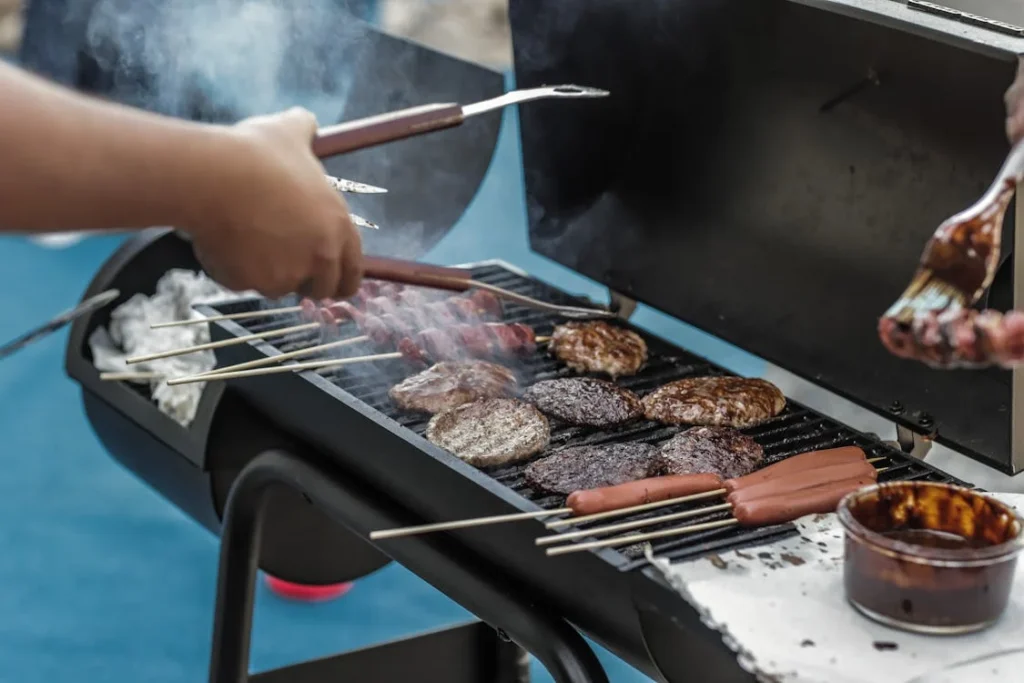
Selecting the perfect BBQ grill can be a daunting task, especially with the vast array of options available on the market today. Whether you’re a seasoned grill master or just starting, finding the right grill is essential for achieving the best flavors and cooking results. In this guide, I’ll break down the various types of grills, their benefits, and factors to consider, helping you make an informed decision that suits your grilling needs.
1. What Type of BBQ Grill Should You Choose?
Choosing the right BBQ grill begins with understanding the different types of grills available. The three most common types of BBQ grills are gas, charcoal, and pellet grills. Each offers unique advantages, depending on your cooking style, flavor preferences, and convenience.
Gas Grills
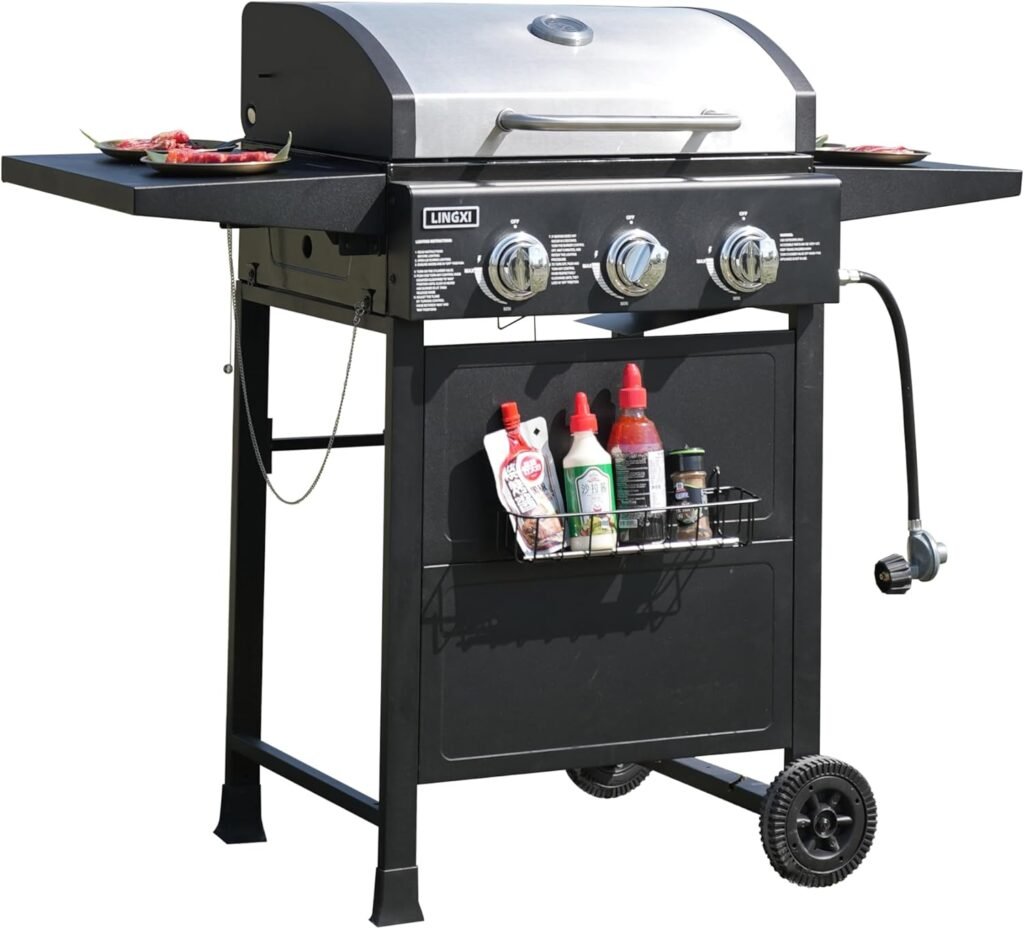
Gas grills are a popular choice for their ease of use and quick heat-up time. They use propane or natural gas to fuel the flames, making them ideal for those who want a fuss-free grilling experience. If you like to grill frequently and want to get cooking quickly, a gas grill might be your best bet.
Pros:
- Heats up quickly.
- Easy to control the temperature.
- Minimal cleanup compared to charcoal grills.
- Ideal for frequent grilling.
Cons:
- Lacks the smoky flavor that charcoal grills provide.
- Can be expensive to maintain if using propane.
Pro Tip: If you’re opting for a gas grill, go for a model with multiple burners. This allows you to create different heat zones, perfect for cooking different foods simultaneously.
Charcoal Grills
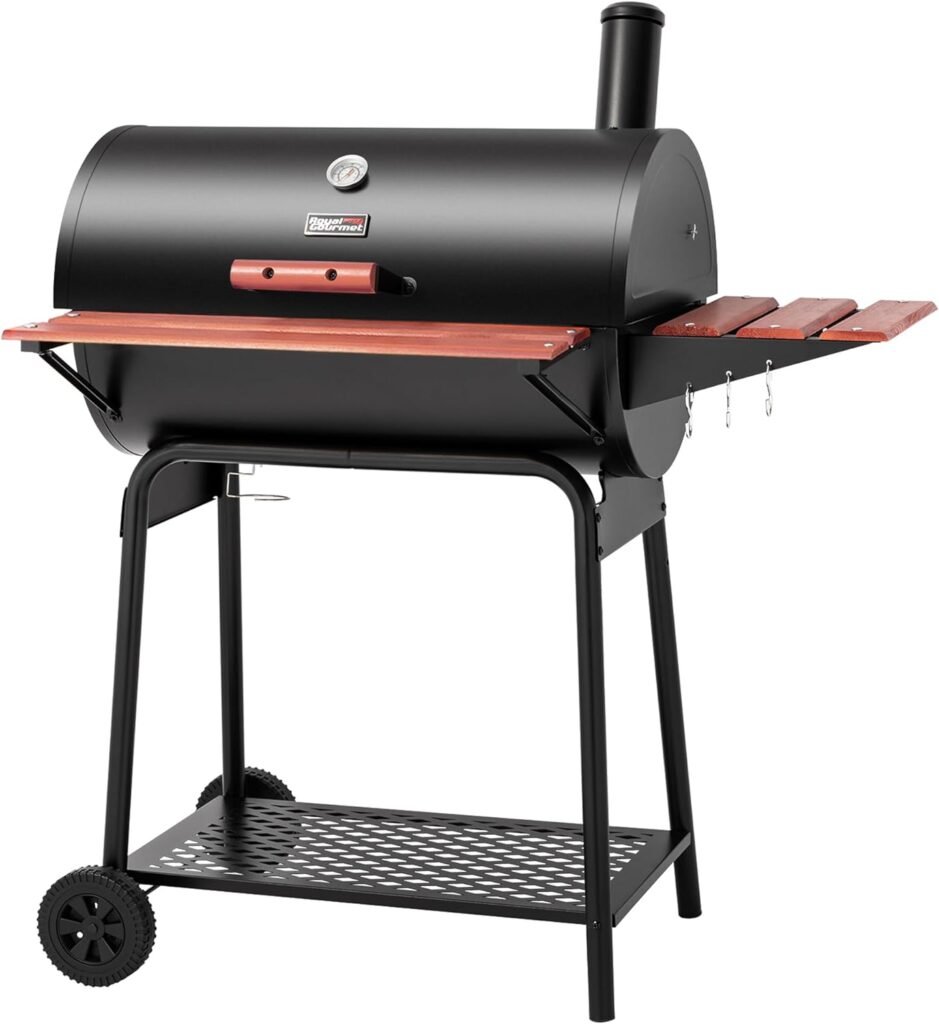
For those who prioritize flavor over convenience, a charcoal grill is often the top choice. Cooking with charcoal infuses a rich, smoky flavor into your food that gas grills just can’t replicate. However, charcoal grilling requires more time and effort, including lighting the coals and cleaning up ash afterward.
Pros:
- Provides a rich, smoky flavor.
- Typically more affordable than gas grills.
- Great for slow-cooked meats like ribs and briskets.
Cons:
- Takes longer to heat up.
- Requires more cleanup (ash removal).
- Harder to control the temperature.
Pro Tip: Look for charcoal grills with adjustable vents and a lid thermometer to help regulate the temperature more easily.
Pellet Grills
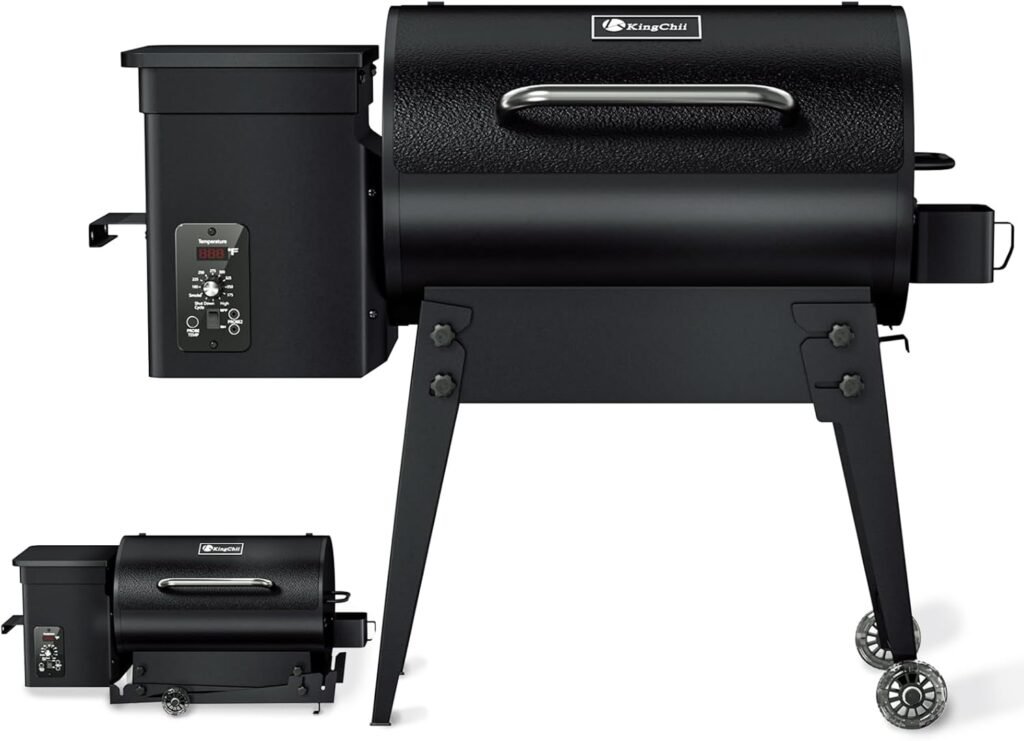
Pellet grills are a newer option and have gained popularity for their versatility. They use wood pellets as fuel, which gives your food a smoky flavor, similar to a charcoal grill, but with the convenience of a gas grill. Pellet grills often come with built-in thermostats, making it easy to set and maintain a consistent temperature.
Pros:
- Excellent for smoking and low-and-slow cooking.
- Provides wood-smoked flavor.
- Easy to control the temperature.
Cons:
- More expensive than gas and charcoal grills.
- Requires electricity to operate.
- Pellet availability may be a concern in some areas.
Pro Tip: If you’re serious about smoking meats, a pellet grill could be the perfect investment. Choose one with a large hopper to reduce the need to refill pellets during long cooks.
2. Consider the Size of Your BBQ Grill
The size of your BBQ grill should match the number of people you typically cook for and the amount of space you have available. Grills come in a wide range of sizes, from compact portable models to large, built-in outdoor units.
Compact Grills
Compact grills are ideal for smaller spaces or those who grill occasionally. They’re easy to move around, making them perfect for tailgating, camping, or small backyard cookouts.
Pros:
- Portable and easy to store.
- Great for small spaces like balconies.
- Typically less expensive.
Cons:
- Limited cooking surface.
- Not suitable for large gatherings.
Mid-Sized Grills
A mid-sized grill is perfect for most households. It provides enough cooking space for medium-sized families and gatherings, offering a balance between portability and functionality.
Pros:
- Suitable for families and small parties.
- More features like multiple burners and warming racks.
- Good balance between size and cost.
Cons:
- Can take up more patio space.
- Still not ideal for large gatherings.
Large Grills
If you love to entertain and host large BBQs, a large grill is a must. These grills offer ample cooking space, multiple burners, and additional features like side burners and rotisserie attachments.
Pros:
- Plenty of cooking space for large groups.
- More advanced features.
- Can cook different types of food simultaneously.
Cons:
- Takes up significant space.
- More expensive than smaller models.
Pro Tip: If you entertain big groups often, look for grills with at least 600 square inches of cooking space.
3. Important Features to Consider
When choosing a BBQ grill, you should also think about specific features that will enhance your grilling experience. Here are some key features to keep in mind:
Heat Distribution
Even heat distribution is essential for perfectly grilled food. Look for a grill that offers good heat retention and distribution across the cooking surface.
Pro Tip: Cast iron or stainless steel grates tend to offer better heat retention compared to thinner, cheaper materials.
Temperature Control
Accurate temperature control is crucial for grilling different types of food. Gas grills typically offer the best control with adjustable knobs, while charcoal grills require you to adjust vents and the amount of charcoal used.
Pro Tip: Opt for grills with built-in thermometers or invest in a digital thermometer for more precise cooking.
Side Burners
If you like to multitask while grilling, side burners can be a lifesaver. They allow you to cook sides, boil sauces, or prepare other dishes without needing an additional stove.
Rotisserie Attachments
Rotisserie grilling offers even cooking for large cuts of meat like whole chickens or roasts. Look for grills with rotisserie attachments if you plan to try this cooking method.
Pro Tip: If you love experimenting with different cooking methods, a grill with a rotisserie feature will add versatility to your BBQ repertoire.
4. Material and Durability
Your BBQ grill’s material will affect its performance and longevity. The most common materials are stainless steel, cast iron, and porcelain-coated steel.
Stainless Steel
Stainless steel grills are known for their durability and resistance to rust, making them a great long-term investment. They’re easy to clean and maintain, but they can be more expensive than other materials.
Pros:
- Rust-resistant.
- Easy to clean.
- Long-lasting.
Cons:
- Can be expensive.
- Poor heat retention compared to cast iron.
Cast Iron
Cast iron grates offer excellent heat retention, making them ideal for searing steaks and other meats. However, they require regular seasoning to prevent rust.
Pros:
- Superior heat retention.
- Great for searing.
Cons:
- Prone to rust if not properly maintained.
- Heavier and harder to clean.
Porcelain-Coated Steel
Porcelain-coated steel grates are easy to clean and offer good heat retention. However, the coating can chip over time, exposing the underlying steel to rust.
Pros:
- Affordable.
- Easy to clean.
Cons:
- Coating can chip.
- Less durable than stainless steel or cast iron.
Pros and Cons of Different BBQ Grills
| Pros | Cons |
|---|---|
| Gas grills heat up quickly and are easy to use. | They lack the smoky flavor that charcoal grills provide. |
| Charcoal grills provide unmatched flavor. | They take longer to heat up and require more cleanup. |
| Pellet grills offer versatility and precise temperature control. | They can be expensive and require electricity. |
| Stainless steel grills are durable and rust-resistant. | They are typically more expensive than other materials. |
Frequently Asked Questions
Conclusion
Choosing the best BBQ grill comes down to understanding your personal preferences, cooking style, and space requirements. Whether you prefer the ease of a gas grill, the flavor of a charcoal grill, or the versatility of a pellet grill, the right grill will enhance your outdoor cooking experience. Take into account the grill size, material, and key features to ensure you make a choice that suits your needs. Happy grilling!
1 septiembre, 2024

How to Clean Your Grill After a BBQ
28 agosto, 2024

Top 5 BBQ Tools Every Grill Master Needs
28 agosto, 2024
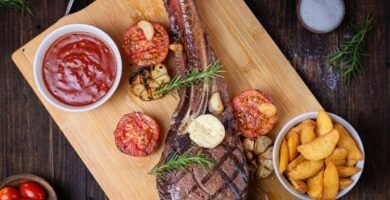
How to Use a Meat Thermometer for Perfect Steaks
27 agosto, 2024

Charcoal vs. Gas Grills: Which is Better?
27 agosto, 2024

How to Use a Smoker for Perfect Ribs
25 agosto, 2024

Lamb Tacos Recipe
25 agosto, 2024

Lamb Stuffed Eggplant Recipe
25 agosto, 2024

Lamb Kofta Recipe
25 agosto, 2024

Lamb Chili Recipe
25 agosto, 2024

Lamb Burgers Recipe
24 agosto, 2024

Pork Tacos Recipe
24 agosto, 2024

Pork Stuffed Peppers Recipe
24 agosto, 2024

Pork Meatballs Recipe
24 agosto, 2024
